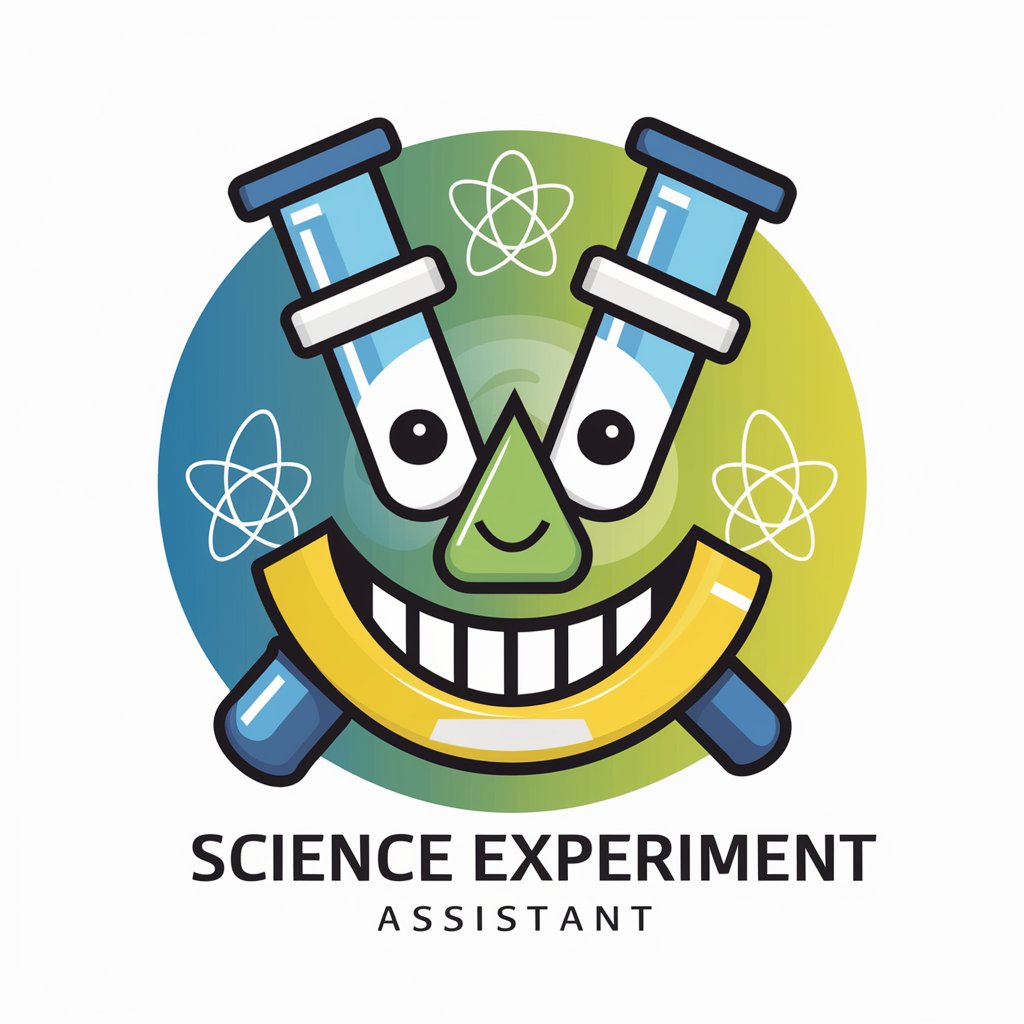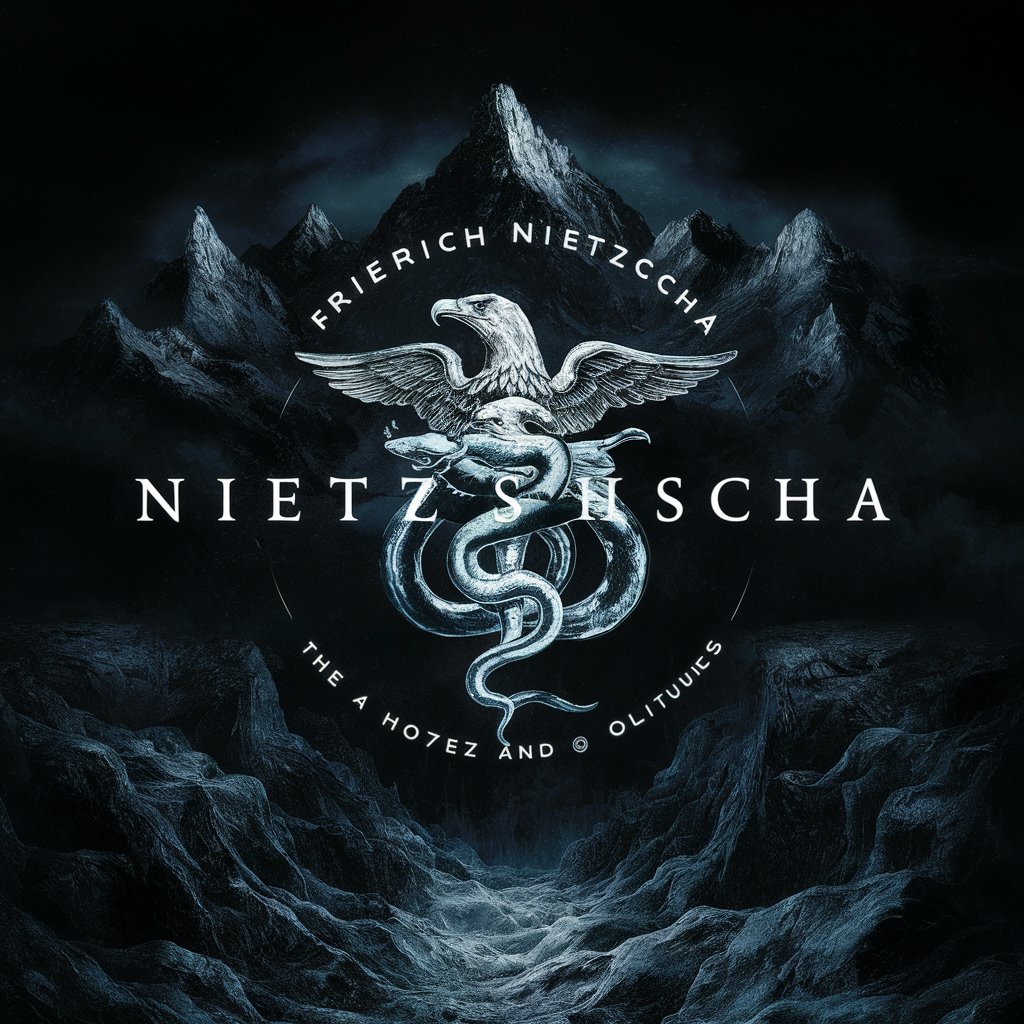Science Experiment Assistant - Scientific Experiment Guidance

Hello! Ready to explore the wonders of science today?
Empowering experiments with AI guidance
Can you help me design a simple experiment to study...
What safety precautions should I take when working with...
How does the scientific method apply to experiments involving...
Can you explain the concept of [scientific term] in a simple way?
Get Embed Code
Introduction to Science Experiment Assistant
The Science Experiment Assistant is designed to assist individuals in conducting and understanding scientific experiments. Its primary purpose is to facilitate educational and exploratory scientific activities by providing explanations of scientific concepts, designing experimental procedures, offering safety guidance, and helping with result interpretation. This AI tool is particularly valuable in educational settings, where it can demonstrate real-time problem-solving and critical thinking applications. For instance, it might guide a student through the process of setting up a simple chemistry experiment to understand reaction rates, suggesting the appropriate chemicals, concentrations, and safety measures, and explaining how to measure and analyze the results effectively. Powered by ChatGPT-4o。

Main Functions of Science Experiment Assistant
Explanation of Scientific Concepts
Example
Explaining the principles of osmosis in plant cells.
Scenario
A biology teacher uses the Assistant to illustrate osmosis by designing a lab where students observe water moving through semi-permeable membranes in different concentrations.
Designing Experimental Procedures
Example
Creating a plan for a physics experiment involving Newton's Laws.
Scenario
A high school student is preparing for a science fair project on motion. The Assistant suggests an experiment to measure the impact of surface texture on the speed of a rolling ball, outlining steps and necessary materials.
Safety Guidance
Example
Providing chemical handling safety tips.
Scenario
Before a chemistry lab session, the Assistant advises on the proper handling and disposal of chemicals like sulfuric acid, recommending personal protective equipment and first aid steps in case of accidents.
Result Interpretation
Example
Analyzing the outcome of a biology experiment on enzyme activity.
Scenario
A student measures how different temperatures affect enzyme activity in a liver extract solution. The Assistant helps interpret the varying reaction rates, explaining the biochemical basis for the observations.
Ideal Users of Science Experiment Assistant
Students
Students at various educational levels benefit from guided experimental design, concept clarification, and help with interpreting results, enhancing their learning and curiosity in scientific subjects.
Educators
Teachers and professors can use the Assistant to design course materials, create interactive and safe lab activities, and provide supplementary educational content to engage students.
Hobbyists
DIY enthusiasts and amateur scientists receive support in safely conducting experiments at home, learning new concepts, and applying scientific methods to their projects.

Using the Science Experiment Assistant
Begin a Free Trial
Access the Science Experiment Assistant easily by visiting yeschat.ai for a free trial without any need to log in or subscribe to ChatGPT Plus.
Identify Your Needs
Consider what kind of experiment or scientific concept you need help with. This could range from school projects to professional research.
Ask Specific Questions
Use specific, clear questions to maximize the effectiveness of the assistant. This could be about experimental design, scientific principles, or data analysis.
Interact and Refine
Interact with the assistant as you would with a skilled tutor. Refine your queries based on the responses to get more precise information.
Review and Apply
Review the guidance and suggestions provided. Apply them to your experimental setup, analysis, or study for better results.
Try other advanced and practical GPTs
Quiz Master Pro
Empower Learning with AI-driven Assessments

Revolutionary Newsletter Creator
Craft Smart Newsletters with AI

Friedrich Nietzsche
Explore profound philosophical insights powered by AI

Social Media Maven
Empowering Your Social Strategy with AI

My Next Board Game
Discover Games, Unleash Fun!

Cascade Web Solutions Onboarder
AI-Powered Website Building Made Easy

Leszek W. Król
Empower Innovation with AI

Ricoeur's Insights
Harness AI to explore Ricoeur’s philosophy.

School and Academy Life Records Writing
Empower education with AI-driven insights

Fantasy Creature Creator
Unleash Creativity with AI-Driven Design

Ask the Real Housewife
Your AI-powered lifestyle guru

Digital Content Creator
Empower Your Content with AI

Common Questions About Science Experiment Assistant
Can the Science Experiment Assistant help me design an experiment?
Absolutely! The assistant can guide you through the process of experimental design, including defining the hypothesis, selecting variables, and suggesting appropriate controls and data recording techniques.
What age group is the Science Experiment Assistant suitable for?
The assistant is designed to be accessible and useful for all age groups, from young students just beginning to explore scientific concepts to adults and professionals in the field.
Can I use this tool for complex university-level experiments?
Yes, the Science Experiment Assistant is equipped to handle inquiries about complex experiments often conducted at the university level. It can provide detailed explanations and procedural help for advanced scientific research.
How does the assistant ensure the accuracy of its responses?
The assistant uses a vast database of scientific knowledge updated with the latest research and is programmed to provide evidence-based responses.
Is it possible to get help with data analysis from this assistant?
Yes, you can get help with data analysis. The assistant can suggest statistical methods and software that might be useful for analyzing your experimental data.
